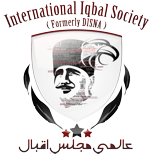Central Asia as Viewed by Allama Iqbal and Others
entral Asia as Viewed by Allama Iqbal and Others
Prof. Sahdulla A. Yuldashev
Cultural relations of the peoples of Central Asia and Hindustan have the long history. The Jatakas, the ancient Buddhist collection of stores of III-II centuries B.C., told about the trade caravans from Hindustan to Central Asia. Geographical location of Central Asia made the region a mediator between the East and West.
During the period of Arabic Khaliphat, both Hindustan and Central Asian scholars played an important role in the development of science and culture of the Khaliphat. Learning science and culture of other nations was an impetus for development of science in the Middle Ages. Muhammad bin Ibrokhim Fazari, Muhammad bin Musa Al-Khorzmi and other Central Asian scholars were inspired by mathematics and astronomy of Indian scientists.
Thanks to Al Khorezini’s works, the whole world learnt the decimal system of counting and with Indian figures.
The great role in cooperation of the Central Asian and Hindustan scholars was played by Abu Raikhon Beruni. The name of Beruni and his life became a symbol of this cooperation. ‘India’ the masterpiece of Beruni and his contribution into studies of Hindustan are highly praised by modern scholars and politicians. “I think nobody of medieval and modern writers did have such a success in understanding of the complicated problems of the Hindustan civilization.” – Khamid Razah wrote in his Cultural Role of Hindustan, Lahore, 1944!
Another personality, Amir Khosrou Dekhlvi, whose father from Kesh (Shakhrisabz), also influenced the outlook and creativity of Central Asian and Hindustan poets. Alisher Navoi, the great Uzbek poet, called him his second Ustoz (teacher). He added, that although Nizami Ganjavi conquered Ganja, but Khosrou with his poetic talent conquered the whole Hindustan, which no ruler could conquer.
In the XVI-XVIII centuries the peoples of Hindsutan and Central Asia continued their cooperation in all the spheres of cultural life: poetry, theory of literature, history, etc.
This cultural heritage and cooperation was brightly and clearly analyzed by the great Hindustan thinker, Muhammad Iqbal. In his Development of Metaphysics in Persia he paid special attention to the ideas of Abu Nasr Farabi and Jalal-ud-Din Romi and some others. Muhammad Iqbal created his conception of the ideal society continuing the tradition of Farabi, Ibn Sina and Beruni, who themselves, in their turn, developed their ideas on an ideal and fair society on the theories of Plato and Aristotle.
This work of Iqbal consists of two parts. The first part is devoted to the Persian philosophy before Islam. M. Iqbal analyzed such teachings as Dualism, Zoroastrianism, Manihaeism and Mazdakism. In the second part he studied the influence of the Ancient Greek philosophy on the medieval Oriental Philosophy. Although it is titled The Greek Dualism, the content of the part does not correspond the title. M. Iqbal examined the influence of Plato and Neo-Platonics on the eastern philosophy. Special attention is paid for influence of Aristotle on Ibn Sin’s philosophy and analysis of the latter from the Islamic positions. M. Iqbal considered Ibn Sina a Neo-Platonic.
M. Iqbal analyzed Ibn Sina’s heritage on the basis of his not very famous work titled Falsafa-e-Mashryiqiya (Oriental Philosophy). This work was not preserved till nowadays. As we know, only 30 of 200 works of Ibn Sina have preserved. M. Iqbal wrote that he had only some fragments of this treatise, where Ibn Sina expressed his ideas about universality of the power of Love in nature. He considered these ideas as the layout of the whole treatise.
S.N. Grigoryan also mentioned Ibn Sina’s “Oriental Philosophy” in his Medieval Philosophy of the Peoples of the Near and Middle East, but insisted that this had been lost even during Ibn Sina’s life, together with his twenty-volume Philosophic Encyclopedia and The Book of Justice, because they were supposed to have been burnt by religious fanatics. But these words of S.N. Grigoryan are very doubtful, because M. Iqbal used some part of the book in the beginning of our century.
Analyzing the “Oriental Philosophy” of Ibn Sina, M. Iqbal emphasized that Ibn Sina defined Love as the highest value of Beauty and distinguished the three categories of being:-
- Things of the highest level of perfection.
- Things of the lowest level of perfection.
- Things being between the two poles of perfection.
But according to Iqbal, the third category does not exist, as there are things achieved their perfection and those looking for it. Struggle for the Ideal is the movement of the Love to the Beauty, which is equal to perfection, according to Ibn Sina.
Both Ibn Sina and Iqbal considered the Beauty in a twofold way. First, as the Eternal Beauty, i.e., the God. On the other hand, as a sensually percepted phenomena of the world. A human being enjoyed the sensual beauty. But both M. Iqbal and Ibn Sina thought that the true Beauty is not changeable and connected with the world of phenomena.
M. Iqbal also agreed with Ibn Sina’s ideas on the relationship between mind (or soul) and body. Ibn Sina considered mind as ability of a human soul to abstract thinking and to the fast transition from unknown to known. Mind is an organ of the soul for comprehending universalities, categories and notions.
Ibn Sina told about the two kinds of mind: possible and active. The main power of an individual soul is her possible mind. Active mind, on the contrary, is the separate from an individual soul principle, which exists in itself. It is universal for all the people.
M. Iqbal wrote: “Ibn Sina told, that body and mind touch each other, but they are completely different by their essence. The death of body is not the condition for the destroying of the soul. Decomposition and disintegration is a feature of the integral parts, and not of the simple indivisible matter.” As well as Ibn Sina, M. Iqbal did not abnegate the immortality of the soul.
The criticism of social evils by Iqbal is closely connected with his ideas of an ideal society, which is more preferable for development of all gentle potentials of a human being. The brightest embodiment of the poet-philosopher’s ideas of an ideal society was his beautiful poem Javed Nama (The Book of Eternity), which he called his swan’s song. The social ideas of the poem were influenced by the book of Farabi, “On the Views of the Citizens of the Virtual City”. In the Middle Ages Farabi was the first to create a clear teaching about genesis, tasks and objectives of the society, tried to work out a scientific system of social and some biological and violence theories of origin of society, Farabi taught about its natural origin: human societies appeared due to peoples’ attempt to satisfy their material and spiritual needs.
M. Iqbal shared this view, likening society to a human body, whose organs cannot exist without mutual care. People are connected to each other in the similar way in the social life. M. Iqbal’s Ideal Society is a society without slaves and slaveholders, society where only justice, equality, friendship, mutual help and love exist. Both Iqbal and Farabi emphasized that in the ideal society all the people honored skills and had right to education. The peasant peacefully cultivates and reaps the harvest himself. There are neither soldiers, no army in the ideal society; people live happy.
M. Iqbal was one of the first Pakistani thinkers to study the philosophic heritage of Central Asia. There were also other prominent scholars studied the cultural influence of Hindustan and Central Asia on each other, such as Mr. Sabte Hussain, who analyzed in his Development of Culture in Pakistan the contribution of king-poet Babur, who wrote his poems both in Persian and Old Uzbek (Chagatai) languages, to Hindustan poetry and culture.
Another Pakistani scholar, Prof. Sheidkh Abdul Rashid, the author of An Outline of Pakistan also wrote about Babur’s contribution. The philosophic and social ideas of Farabi and Ibn Sina were analysed in the book of Mr. Mukhmmad Sharif titled History of Muslim Philosophy and the book of Ms. Sadia Iqbal, Islamic Rationalism on the Indian Subcontinent. The latter contains an interesting analysis of Plato’s and Aristotle’s influence upon Farabi’s and Ibn Sina’s ideas. Like M. Iqbal, Ms. Sadia Iqbal considered these thinkers as followers of Neo-Platonic tradition.
All the above Pakistani tried to give an objective analysis of the role of such Central Asian thinkers as Abu Nasr Farabi, Abu Ali Ibn Sina, Abu Raikhan Beruni, Amar Khayam, Abdurakhman Jami and others in the world culture.
But only after the gaining of Independence by Former Soviet Central Asian Republics made it possible to develop cooperation between Central Asia and Pakistan. A bright example of such cooperation between Pakistan and Uzbekistan in the field of culture was the book Great Mystic Poets of Pakistan, printed in 1995 by the Academy of Literature of Pakistan in the Russian language. On the other hand, Prof. R. Mukhamedjanov, a famous Uzbek scholar, translated the poems of Alisher Navoi from the old Uzbek language into Urdu.
And I am very hopeful, that such cooperation between Pakistan and Central Asia, foreseen by M. Iqbal, has an excellent future.
Head, Department of History of World Philosophy and Logic, Philosophic Faculty, Tashkent State University.
Source:
Iqbal Congress Papers,
Third Allama Iqbal International Congress,
November 9-11, 1998.
University of the Punjab, Lahore, Pakistan.






